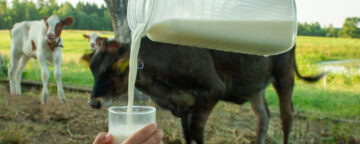A new paper by APPC and Penn psychologists suggests that harm reduction interventions for substance use increase the public's trust in local government.
Press Releases

Q&A: Emily Falk on ‘What We Value: The Neuroscience of Choice & Change’
Director of the Communication Neuroscience Lab and APPC's Climate Communication Division, ASC Professor Emily Falk discusses her book, "What We Value: The Neuroscience of Choice & Change."

Interactive Map Shows Economic Impact of Cuts to Federal Funding for Health Research
Researchers at Penn and other institutions developed SCIMaP, an interactive map to show the impact that cuts to federal funding for scientific research would have at national, state, and county levels.

Annenberg Classroom Film on First Amendment a Finalist for ABA Award
The film "The First Amendment: New York Times v. Sullivan," on the landmark 1964 Supreme Court case, has been named a finalist for an ABA Silver Gavel Award.

Awareness Grows of Cancer Risk From Alcohol Consumption
Public awareness of the link between drinking alcohol and an elevated risk of cancer has grown since last fall, according to an Annenberg Public Policy Center survey.
People Select Feedback to Flatter Others, Except When They Dislike Them
An APPC-led study finds that people generally opt to offer flattering feedback to make others feel good about themselves, unless the stranger is unlikable.

‘I Will Vote’: Using Future-Oriented Frames to Motivate Voters
Research by APPC scholars shows that exposure to future-oriented frames, like "I Will Vote" stickers, increases voting intentions.

With Bird Flu in Raw Milk, Many Still Do Not Know Risks of Consuming It
An APPC survey finds that, despite potential bird flu contamination, many Americans do not know that raw milk poses greater health risks than pasteurized milk.

Dolores Albarracín Honored with BBVA Foundation Frontiers of Knowledge Award
Dolores Albarracín was honored with the BBVA Foundation Frontiers of Knowledge Award for her research into behavior change and persuasive messaging.

Over 1 in 3 Adults in Households With Guns Do Not Store All in Locked Locations
Despite the increased risk of injury and death, over a third of gun owners do not store all their firearms in a locked location, an APPC survey finds.